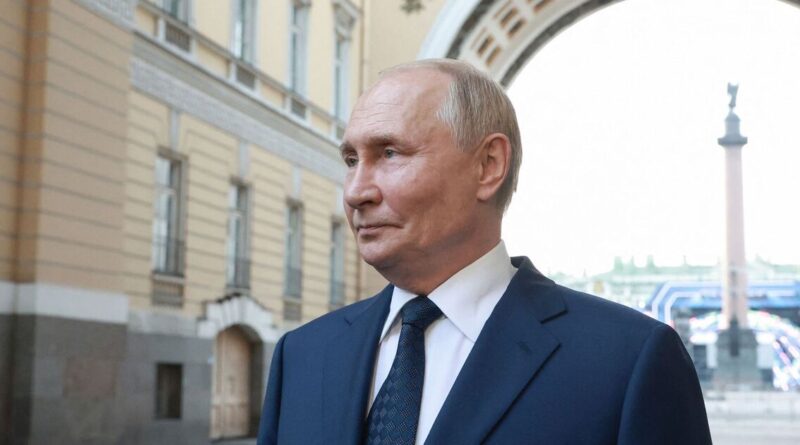Putin’s nightmare as Ukraine could use UK and US weapons in Russia | World | News
At long last the USA and Britain look likely to relax the restrictions on weaponry they have supplied to Ukraine. UK Prime Minister Sir Keir Starmer and US President Joe Biden are meeting in Washington DC today and the topic looks like being at the top of their agenda.
Up until now some weapons systems which have been donated to Ukraine have been restricted to being used only in Russia-occupied Ukrainian territory, including Crimea, and the international waters of the Black Sea. Mainland Russia has been placed out of bounds for fear of escalating the conflict.
This has applied particularly to the 190-mile range US ATACMS ballistic missiles and the 155-mile range Storm Shadow/SCALP cruise missiles, with which the Ukrainians will be able, all things being equal, to strike deep into mainland Russia.
The effect of this will be to push the air bases from which Russia is able to mount its own missile and glide bomb attacks against Ukraine further back into the Russian hinterland, and also to bring many more ammunition and logistic facilities within range. It signals major discomfort and disruption for the Russians, and will have a collateral effect on their population too.
This being the case, of course, Ukraine will also gain more warning time to react and defeat Russian air-launched assaults, which will be a major enhancement of their air defences. Time between detection and interception of incoming missiles will be increased, allowing greater accuracy of air defence systems and allocation of resources.
The lifting of restrictions has been the topic of pleas from President Zelensky to the Americans for many months and a subject much discussed in western corridors of power. American politicians have been particularly lily-livered on the subject, practising a form of self-deterrence which has been in Putin’s favour.
The truth is that the ban should have been lifted long ago, because Ukraine was essentially fighting the air war with one hand tied behind its back. But the main catalyst for this welcome if tardy western volte-face seems to have been Iran’s recent supply of 200 ballistic missiles to Russia. If Russia can use Iranian-supplied missiles to attack Ukraine then it seems only right and proper that Ukraine can use western-supplied missiles to attack Russia.
Putin and the Russian people will now be brought ever closer to the front line of their illegal, unprovoked, and aggressive war in Ukraine. Typically, he has reacted to the news with his usual mix of threats and bluster, suggesting that Moscow would regard western missiles being used against it as a serious escalation of the war.
He said on Russian state television that “this would mean nothing other than the direct participation of NAO countries … in the war in Ukraine”, and that “we will take corresponding decisions based on the threats that will be created to us”. Others have hinted darkly at the possible deployment of tactical nuclear weapons.
While it would be both brave and foolhardy to dismiss such threats completely out of hand, it is most unlikely that Putin would follow through, or be allowed to follow through by his political advisers and rivals in the Kremlin, with such threats.
The reason? Quite simply it would lead to the demise of both him and the Russian regime. NATO is so many times more powerful both militarily and economically than Russia that there could be only one winner. So it won’t happen.
However, it’s clear that Putin is rattled and perhaps wondering how he can now get out of his “special military operation” in Ukraine. The prospect of it dragging on for years will not appeal in the slightest and he is no closer to victory than he was two and a half years ago.
Keir Starmer was robust in his response, stating that “Russia started this conflict. Russia illegally invaded Ukraine. Russia can end this conflict straight away”.
We now wait to see whether he and Biden agree to declare “weapons free” for ATACMS and Storm Shadow. My personal view is that, far from escalating the confrontation, such a move will bring an end to the war a little bit closer.
Lt Col Stuart Crawford is a political and defence commentator and former army officer. Sign up for his podcasts and newsletters at www.DefenceReview.uk





